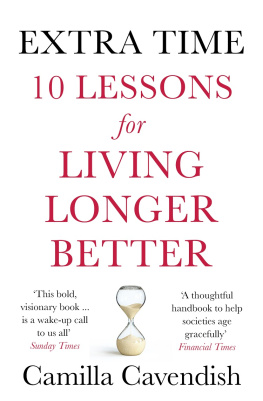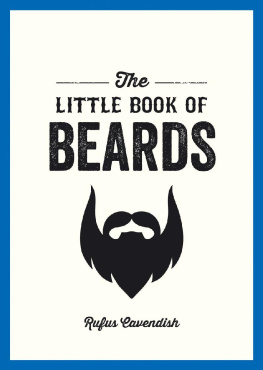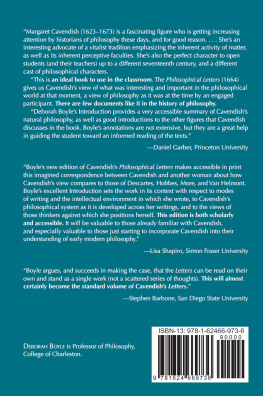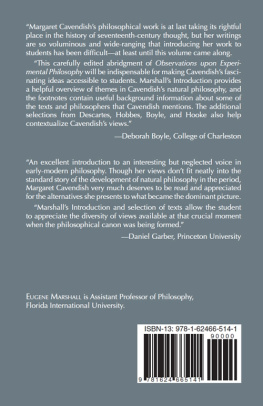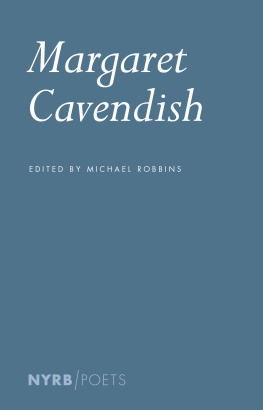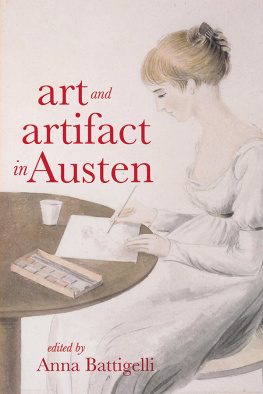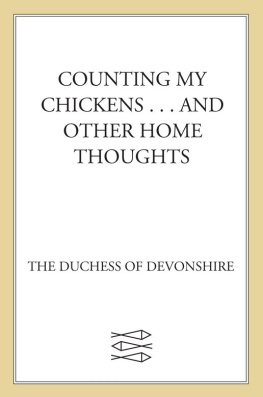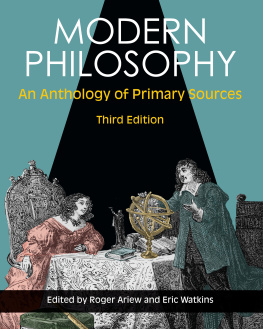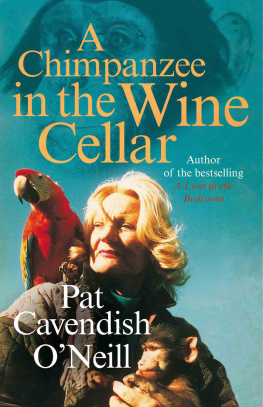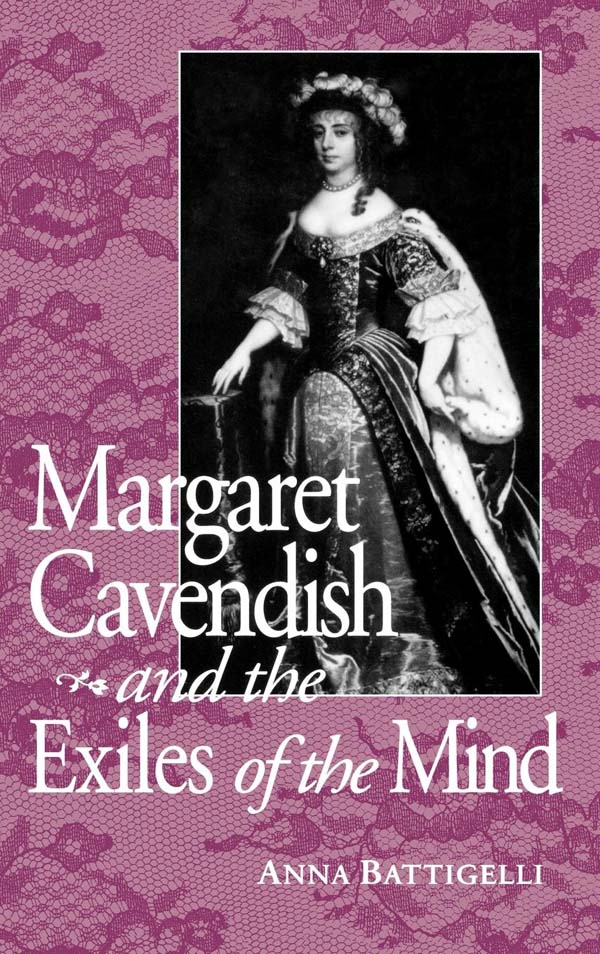Studies in the English Renaissance
John T. Shawcross, General Editor
MARGARET CAVENDISH
AND THE
EXILES OF THE MIND
Anna Battigelli

Publication of this volume was made possible in part by a grant from the National Endowment for the Humanities.
Copyright 1998 by The University Press of Kentucky
Scholarly publisher for the Commonwealth, serving Bellarmine College, Berea College, Centre College of Kentucky, Eastern Kentucky University, The Filson Club Historical Society, Georgetown College, Kentucky Historical Society, Kentucky State University, Morehead State University, Murray State University, Northern Kentucky University, Transylvania University, University of Kentucky, University of Louisville, and Western Kentucky University.
All rights reserved
Editorial and Sales Offices: The University Press of Kentucky
663 South Limestone Street, Lexington, Kentucky 40508-4008
02 01 00 99 98 5 4 3 2 1
Library of Congress Cataloging-in-Publication Data
Battigelli, Anna, 1960
Margaret Cavendish and the exiles of the mind / Anna Battigelli.
p. cm.(Studies in the English Renaissance)
Includes bibliographical references (p. ) and index
ISBN 0-8131-2068-3 (cloth : alk. paper)
1. Newcastle, Margaret Cavendish, Duchess of, 1624?-1674Learning and scholarship. 2. Women and literatureEnglandHistory17th century. 3. RoyalistsGreat BritianHistory17th century. 4. Great BritainIntellectual life17th century. 5. ExilesEuropeHistory17th century. 6. BritishEuropeIntellectual life. 7. Exiles in literature. 8. RenaissanceEngland. I. Title. II. Series.
PR3605.N2Z59 1998
828.409dc21 97-47261
This book is printed on acid-free recycled paper meeting the requirements of the American National Standard for Permanence of Paper for Printed Library Materials.

Manufactured in the United States of America
This book is dedicated to my parents,
Mario and Giovanna Battigelli
Contents
Appendix A
Problems in the Dating of Margaret Lucass Birth
Appendix B
The Letters of Margaret Lucas Addressed to William Cavendish
Note on Dates, Spelling, Editions, and Titles
Old Style dates are retained, but with the year beginning on 1 January. The Old Style Calendar was ten days behind the New Style Calendar used on the Continent. With the exception of the young Margaret Lucass personal letters, spelling, capitalization, and punctuation have been left in their original state. The decision to modernize her personal letters within the text was based on the fact that their original spelling poses substantial difficulties to the reader and would interfere with the process of entering into the young Margaret Lucass mind. The curious will find these letters transcribed with their original spelling in .
Cavendish republished most of her volumes, sometimes more than once. Unless otherwise noted, I have used the first edition of each of her volumes in order to trace the proper sequence of the development of her ideas. Where pagination is faulty, I have tried to properly indicate the page number in the notes.
Some explanation is needed in order to account for the decision to refer to the subject of this book simply as Cavendish. She was born Margaret Lucas and discussions of her early life refer to her as such. In 1645 she married William Cavendish, marquess of Newcastle, and she became Lady Margaret, marchioness of Newcastle. In 1665, when her husband became the duke of Newcastle, she similarly became the duchess of Newcastle. She routinely signed her name as Margaret Newcastle; thus our modern habit of referring to her simply as Cavendish is admittedly anachronistic and will inevitably annoy both the reader whose historic sensibility notices the inaccuracy and the reader who believes, rightly, that we ought to refer to people by the names they choose for themselves. No objection can be made to these claims other than to suggest that for better or for worse she has become Margaret Cavendish. She transformed her life into a myth that has taken on a life of its own; I refer to her as Cavendish and to her husband as Newcastle, an admittedly lopsided arrangement that has as its chief virtue some added clarity.
Acknowledgments
In the process of writing this book, I have incurred many debts. It is a pleasure now to acknowledge them. The research for the book began in 1992, during a National Endowment for the Humanities Summer Seminar, The Uses of Biography and Biographical Evidence, directed by Paula R. Backscheider. Plattsburgh State University of New York facilitated further research in London and Oxford. A summer stipend from the National Endowment for the Humanities and a short-term fellowship from the Folger Shakespeare Library made it possible for me to complete the work.
Both Paula R. Backscheider and James A. Winn read and commented on chapters as they were written. I am grateful to both of them. Material from this volume was presented to members of the Folger Institute Conference on early modern womens political writings and to members of the Harvard Center for Literary and Cultural Studies, and I have benefited from comments from participants, particularly Gordon Schochet, Lois Schwoerer, Hilda Smith, and Susan Staves. Friends and colleagues have also been generous-spirited in both responding to queries and presenting them. Among these, I am especially grateful to Kim Barnes, Franca Betti, Kevin Cope, Lois Crum, Alan DeGooyer, Elizabeth Hageman, Frances Harris, Frances Huemer, Lisa and David Nurme, and Harriette L. Walker. Linda Barnard, Lorraine Moriarty, and Jeannine Zenge have my long-standing appreciation. My husband, Paul Johnston, read and commented on the manuscript as it evolved, keeping me company during the sometimes lonely work of writing.
Early versions of chapters 4 and 5 have already appeared in print. An article on Cavendish and the Royal Society appeared in 1650-1850: Ideas, Aesthetics, and Inquiries in the Early Modern Era 2 (1996): 25-38. An article on Margaret Cavendish and Thomas Hobbes appeared in Women Writers and the Early Modern British Political Tradition, edited by Hilda Smith (Cambridge: Cambridge University Press, 1998). My thanks to Kevin Cope and to Cambridge University Press for permission to print extended versions of those pieces here. The British Library Board kindly granted permission to reprint Margaret Lucass letters in .
Special thanks go to the expert staff at the Folger Shakespeare Library, especially to Harold Batie, LuEllen DeHaven, Rosalind Larry, Camille Seerattan, Betsy Walsh, Laetitia Yeandle, and Georgianna Ziegler. The staff of the British Library, the Bodleian Library, the London Public Office, the Bailey/Howe Library at the University of Vermont, the Houghton Library at Harvard University, and the Hallward Library at the University of Nottingham graciously responded to a number of queries. I am grateful to Linda Shaw and Barbara A. Andrews for help with letters from Theodore Mayerne to William Cavendish. The Hon. Mrs. George Seymour has also been most kind. I am indebted to Nancy Grayson Holmes, to the expert staff at the University Press of Kentucky, and to the anonymous and attentive readers there for the final shape of this book. At Plattsburgh State University of New York, H.Z. Liu, dean of Arts and Sciences, and Tom Moran, provost, have steadily supported my work by facilitating travel for research. Mary Turner and the late Craig Koste graciously and efficiently obtained books and microfilm for me through interlibrary loan; without their help, this book would not now be complete.


